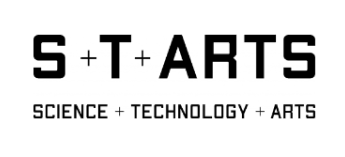Scenario 6: The Cooking Ape Institute
by Maciej Chmara
#Personalized Nutrition Solutions #AI-Driven Recipe Development #Holistic Food Preparation #Culinary Education #Kitchen Appliances #Microbiome Health-Tech
Here you can explore in detail the future scenario. Opportunities describe a potential for innovation that this scenario unfolds, considering specific technologies, context of application and industry. Scenario narrative gives a description of the scenario provided by the artist. You can also watch a Video to dive into the future world of the scenario, where the artist will guide you through. Trends of the scenario explore the current trends and developments on which the scenario is based. And finally Elements of the scenario provide artifacts, objects, personas and other elements from the future to immerse and discover the scenario.
OPPORTUNITIES
There are opportunities for companies in health and wellness, culinary education, and the food industry, encompassing personalized nutrition solutions, AI-driven recipe development, and innovations in technology-enhanced kitchen appliances. The food industry, keen on staying at the forefront of consumer trends, can explore AI-driven recipe development and robotics in commercial kitchens to meet the growing demand for health-conscious and innovative culinary offerings. Additionally, companies focused on microbiome and health tech can collaborate to develop products and services that align with the scenario’s emphasis on health-optimized meals and stress reduction during food preparation. This scenario offers a landscape where companies can pioneer advancements, foster innovation, and align their offerings with the evolving dynamics of holistic, technology-enhanced food preparation.
SCENARIO NARRATIVE
The preparation of food can have an important role in our society in the context of the umbrella term „Food as medicine“. It can have mental, physical, and ecological benefits.
How is it possible to support and revolutionize the process of cooking, baking, and food preparation? Cooking can take on a whole new role in our society through a holistic approach, with the cornerstones being personalized and environmentally friendly nutrition (such as the Planetary Health Diet) as well as mental health through multi-sensory perception during the preparation process. This concept, leading to improved mental and physical health, is by no means the romanticization of grandma’s cooking.
In an increasingly digitalized society, the physical and psychological needs of sensory activities are often neglected. Our senses provide us with orientation and mental balance.
It is always an interplay of several senses that allows us to perceive the world. In psychology, this is known as multi-sensory experience and is particularly prominent in the culinary world, where haptics, acoustics, olfactory, gustatory, and visual senses create a shared experience. Looking at the preparation of food in evolutionary terms, we could argue that our fine motor skills, the development of various technologies, and the handling of new materials are strongly linked to the preparation of food.
In addition to the multi-sensory aspects of preparing food, especially when working with sourdough or other fermented products, there is a microbial exchange that can benefit both the product and the person cooking it. The current discourse on inter-species relationships in the context of the ecological crisis shows that there can be no debate on human well-being without including other life forms.
Could we reinvent the way how we prepare food and create a multi-sensorial and inter-species experience for a physically, mentally, and ecologically healthier life?
VIDEO
TRENDS OF THE SCENARIO
Personalized Nutrition / Food as medicine
The role of food is no longer strictly bound to only nourishment. Different diets focus strongly on health aspects and digestion. With the strong development of research in the field of digestion and affordable genetic sequencing of the gut’s microbiome, we start understanding, that individual needs and digestion can differ strongly through different individuals. The same food can make one person sick or heal the other. How can this approach be applied to everyday life and what are the social risks of it?
Planetary Health Diet
The planetary health diet is a proposal for a diet, that is designed to make it possible to nourish 10 billion people ecologically and healthily. Diets are not only bound to one’s own body but can also be a form of political activism and social responsibility. The overall message of this approach is, that what is healthy for you and your body is also good for society and ecology. To summarize, this concept encourages people to consume less meat and other animal produce and to shift the focus of their diet to vegetables and cereals with a smaller ecological footprint.
COVID home baking
During the COVID lockdowns a huge home-baking hype developed. Different reasons and psychological motives have been responsible for that. Besides self-sufficiency, health, taste aspect, and the fear of food shortage, the complex sensuality of the process of preparing sourdough bread, as well as the multi-sensory experience and satisfaction of the result are responsible, that this trend is only growing. In the context of the health issues of an ultra-processed food debate, even more people are starting to bake their breads, and developing an emotional connection to their new pet, the sourdough starter.
Self-Optimisation and society of fake
Alcohol-free beer, caffeine-free coffee, sugar-free sweets, meatless meat, or gluten-free bread. Some people in society try to eliminate things from their food that they identify as harmful to them, without eliminating the whole food but redesigning the food or consuming a kind of substitute. A culture of sacrifice, without sacrifice. The reason for this is the strong social pressure to be perfect and to improve oneself constantly. As the pressure to do this grew so big, and people try to get rid of so many elements of their nutrition a culture of substitutes developed.
Multi-Sensory Experience
Multi-sensory experience is described in contrast to classical psychological research that focuses only on one sense, e.g. optics or haptics, the correlation between individual senses, and the importance of these for fulfilling sensual triggering and satisfaction. Especially in food research, multi-sensory experience plays an important role, as in most cases haptic, acoustic, gustatory, olfactory, and optic experiences together create a fulfilling culinary experience. Especially in designing novel foods, multi-sensory experience plays a significant role. Research on this topic is also discussed more and more in the context of mental health and the sensual shift to visual experience in the context of digitalization.
Archaeology of Food Preparation
A small group of anthropologists and archaeologists are researching the importance of the act of preparing food for the development of society. This research is not only about the importance of cooked (heated) food in the context of digestibility, protein, and brain growth referring to the anthropologist Wrangham. It can implement all aspects of food preparation, like techniques, tools, and even ornaments to explain the development of our society and culture.
ELEMENTS OF THE FUTURE SCENARIO
Prof. Coctatio
Prof. Coctatio is the founder of the Cooking Ape Institute, who researches the importance of the holistic approach to food preparation in the context of physical and mental health. Coming from a medical background and being focused on personalized nutrition, she developed an interdisciplinary approach focusing on the preparation of food. Due to her work, the kitchen and the aesthetic practices of cooking, baking, or fermenting have taken on a whole new status in society. Prof Coctatio’s career began with the further development of Richard Wrangham’s “cooking hypothesis”. In short, she added the process of food preparation to his teachings. In her view, it is not just the cooking itself, the consumption of cooked food, or the associated social constellations that should be considered. In her theory, an evolutionary role is attributed to the technological, fine motor, and generally physical developments associated with food preparation.
Sensual kitchen
A kitchen that is designed to support sensual experience and the improvement of fine motor skills in the context of different forms of food preparation like cooking, baking, or fermenting. The focus of this kitchen lies in enjoying the process and not automating it. Every kitchen appliance is questioned as to whether it is actually necessary or rather prevents interesting sensory experiences. Appliances such as blenders are being redesigned to be muscle-powered, which not only makes the person cooking fitter but also reduces energy consumption. Artificial intelligence supports recipe selection in order to optimize the kitchen in the context of the Planetary Health Diet, energy consumption, and food waste. New materials are used in the kitchen, which increase the sensory experience, but are also closer to the philosophy of the kitchen. These materials are developed with the help of fermentation processes, mycelium, or food waste.
Cooking ape institute
The Cooking Ape Institute is a place, that gathers researchers, artists, and chefs under the umbrella term of „the kitchen is medicine“. The members of this institute work in interdisciplinary teams on the potentials of the process of food preparation. All the members believe in the importance of food preparation and the kitchen as a cultural tool for a mentally and physically healthy society. Although the institute is working inter-disciplinary it consists of the following departments: Anthropology of the kitchen, archeology of food, the aesthetic practice of food preparation, social cooking, microbial mental health, microbial physical health, inter-species relationship, material development, microbial design, kitchen design, medical design, multi-sensory therapy, and experimental arts in food. The institute follows the anthropological theory of Neo-Wranghamism, based on the teachings of Prof. Coctatio.
Kitchen therapy
Kitchen therapy describes a therapy form that heals the body and mind with the help of food. It includes cultural techniques and aesthetic practices, comparable to playing a musical instrument, meditation, or yoga – only with food. These are combined with personalized nutrition and the inter-species relationship with microorganisms. It is a development of the umbrella term „food as medicine“ as it is not concentrated on the consumption of food itself but on the beneficial aspects of its preparation. A big sourdough hype was observed during the Covid lockdowns. More and more people discovered the healing effects of baking bread. There were even people who spoke of a cure for depression. Food preparation techniques have been remodelled to not only have as their primary goal the efficient preparation of a meal, but to enhance mental and physical therapeutic aspects.
AMBIENCE OF THE SCENARIO:


